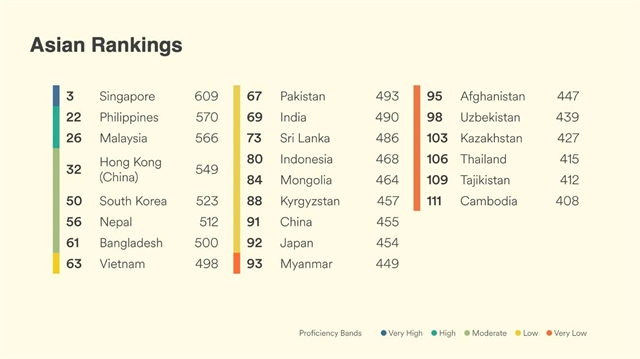 Economy
Economy

The listing of nine commercial banks in 2018 is expected to boost the banking sector, as well as the entire securities market.
 |
| TPBank is one of nine joint stock commercial banks which plan to list on the stock market in 2018. — Photo baophapluat.vn |
HÀ NỘI — The listing of nine commercial banks in 2018 is expected to boost the banking sector, as well as the entire securities market.
The nine commercial banks that had planned their listing on the stock market in 2018 include Việt Nam Technological and Commercial Joint Stock Bank (Techcombank), Tiên Phong Bank (TPBank) and Maritime Commercial Joint Stock Bank (Maritimebank).
The listing of those banks would improve the attractiveness of the banking sector for investors, according to BIDV Securities Company (BSC).
Bank shares are expected to trade positively in 2018, as the banking sector seeks to achieve higher credit growth, while their non-performing loans would be resolved at a faster pace and the restructuring of their businesses would improve, BSC said in a report.
The core business of the banking sector is forecast to go up, BSC said, as Việt Nam’s macroeconomic conditions would likely improve, while banks could explore more opportunities, in addition to receiving revenues from interest income.
The brokerage firm said financial lending in 2018 is predicted to grow by 18-19 per cent, thanks to higher demand for borrowing from the better-performing economy, which is forecast to expand at a 6.5-6.8 per cent rate, while commercial banks are allowed to spend 45 per cent of their short-term capital for middle- and long-term lending, as regulated by the State Bank of Việt Nam in Circular 19/2017/TT-NHNN, instead of 40 per cent, which is regulated by the central bank in the Circular 36/2014/NHTT.
The rate would be reduced to 40 per cent starting in 2019, and such an adjustment would help banks provide middle- and long-term lending for their customers, especially property developers and construction companies that have high and long-term interest rates.
Among all types of credit lending, consumer lending reached a growth rate of 59 per cent in 2017, and it is forecast to go up this year, BSC said.
It attributed the prospects of consumer lending to the shift of the business strategy at State-owned banks to focus more on individual clients and private-equity banks, where VPBank, HDBank, MBBank and Sài Gòn-Hà Nội Bank (SHB) have also expanded their influence in the consumer finance segment.
Additionally, financial technology (fintech) would transform tradition-model banks, as both State-owned and joint stock commercial banks would have to compete with each other, as well as technology firms that provide financial-banking solutions, BSC said.
“That competition may not only press banks to suffer from lower profitability growth, but also force them to transform their own business models and update technologies to diversify products and services to meet demand from customers,” BSC said.
According to the Hà Nội-based securities firm, the evaluation of Vietnamese bank shares is quite high, compared to the Asia-Pacific region. The average price-to-earnings per share ratio (P/E) and average price-to-book value ratio (P/B) of Việt Nam’s bank shares are 20.62 and 1.54, compared to 11.9 and 1 in the overall Asia-Pacific region. — VNS









